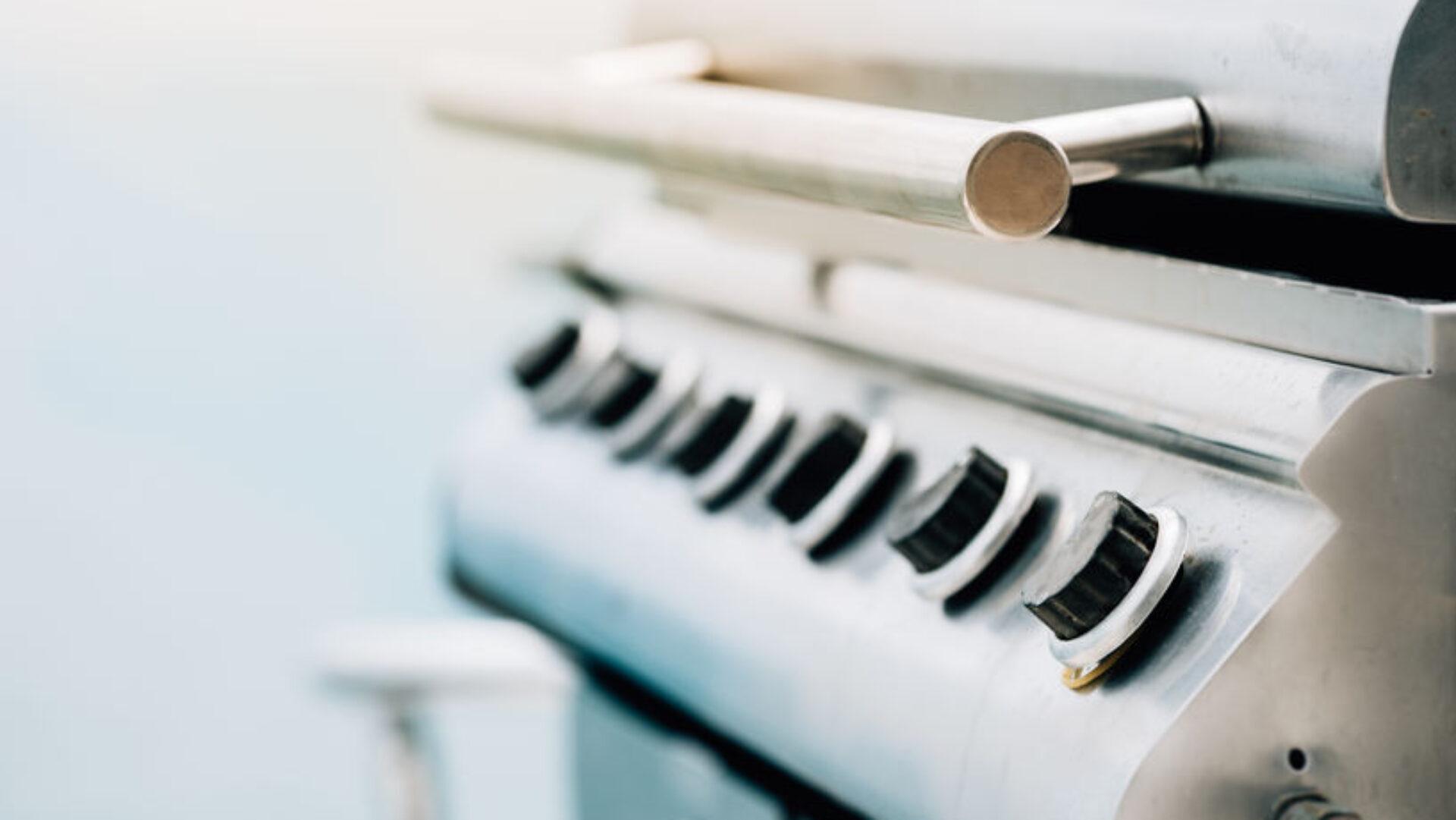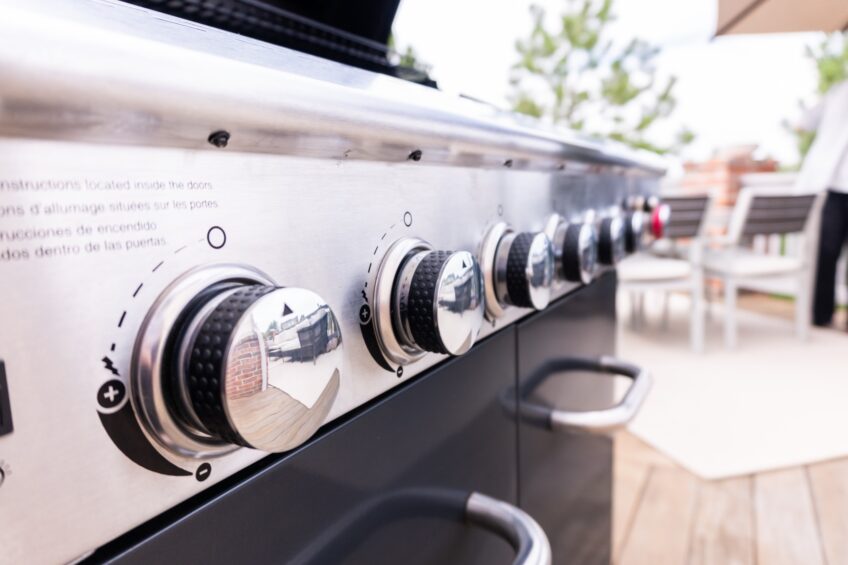
Grilling enthusiasts often face the frustration of rust forming on their beloved outdoor cookers. This common issue has led many to wonder if a truly rust-proof grill exists.
While no grill is completely impervious to rust, some materials and designs offer significantly better resistance to corrosion.
Stainless steel grills are among the most rust-resistant options available.
High-quality stainless steel, particularly grades like 304 and 316, provide excellent protection against the elements.
These grills can withstand moisture, heat, and various weather conditions without succumbing to rust as quickly as their less durable counterparts.
Ceramic grills, such as kamado-style cookers, offer another rust-resistant alternative.
Their ceramic construction eliminates the risk of rust on the main body, though metal components may still be susceptible.
Proper maintenance and care remain essential for maximizing the lifespan of any grill, regardless of its material composition.
Understanding Grill Materials
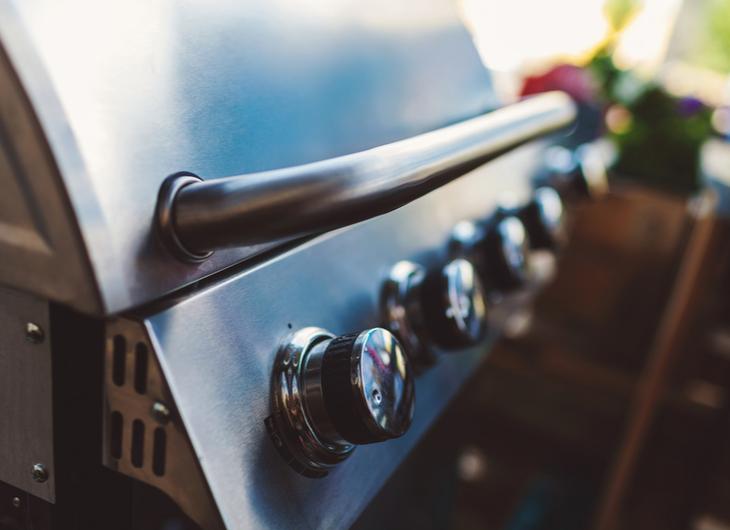
Grill materials play a crucial role in durability and performance.
Different materials offer unique advantages for various grill components.
Stainless Steel Characteristics
Stainless steel is a popular choice for grill construction.
It resists corrosion and rust, making it ideal for outdoor use.
High-grade stainless steel, such as 304 or 316 grades, offers superior resistance to the elements.
Stainless steel grills are easy to clean and maintain.
They typically have a sleek, modern appearance that many homeowners prefer.
The material’s heat retention properties allow for even cooking temperatures across the grilling surface.
Some stainless steel grills may develop surface discoloration over time.
This doesn’t affect performance but can impact aesthetics. Regular cleaning helps preserve the grill’s appearance.
Cast Iron Grate Advantages
Cast iron grates are prized for their excellent heat retention and distribution.
They create desirable sear marks on food and maintain consistent cooking temperatures.
Cast iron becomes naturally non-stick with proper seasoning and use.
These grates require more maintenance than stainless steel.
Regular seasoning with oil prevents rust and improves non-stick properties.
Cast iron grates are heavier than other materials, which can be a consideration for portable grills.
With proper care, cast iron grates can last for many years.
They develop a patina over time that enhances their cooking performance.
Some grillers prefer the flavor imparted by well-seasoned cast iron grates.
Rust Resistance in Grills
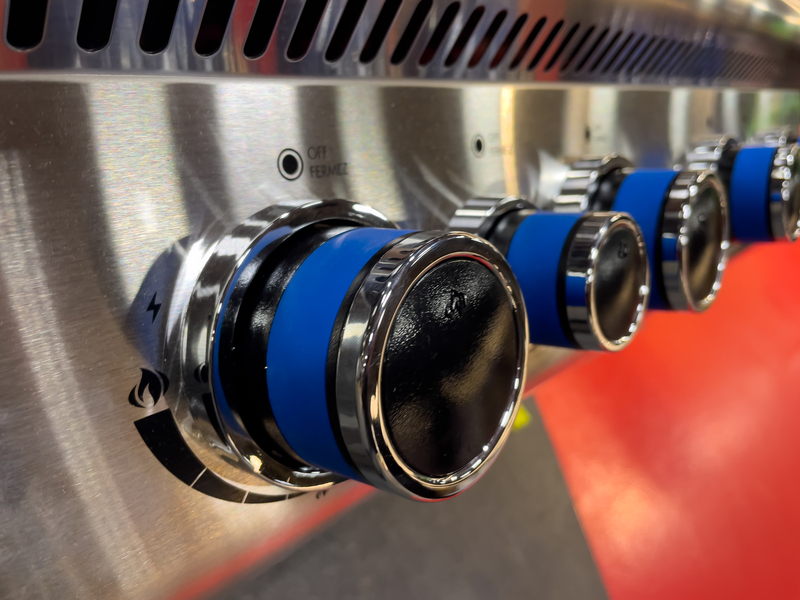
Rust resistance is a crucial factor in grill durability and longevity.
Modern grills employ various materials and techniques to combat corrosion and extend their useful life.
Factors Affecting Rust Resistance
The environment plays a significant role in a grill’s susceptibility to rust.
Coastal areas with salt-laden air accelerate corrosion, while humid climates increase moisture exposure.
Frequent use and proper maintenance can help prevent rust formation.
Grill storage also impacts rust resistance.
Keeping grills covered when not in use protects them from rain and dew.
Indoor storage during off-seasons provides the best protection against the elements.
The quality of materials used in grill construction greatly influences rust resistance.
High-grade stainless steel, such as 304 or 316 grade, offers superior corrosion resistance compared to lower grades or other metals.
Rust-Resistant Grill Features
Manufacturers incorporate several features to enhance rust resistance in grills.
Powder-coated finishes provide a protective barrier against moisture and corrosion.
This coating is often applied to less expensive grill models.
High-quality stainless steel components are a hallmark of rust-resistant grills.
Grates, burners, and exterior panels made from 304-grade stainless steel offer excellent durability and corrosion resistance.
Some grills feature aluminum parts, which naturally resist rust.
Aluminum components are lightweight and cost-effective, making them popular in portable grills.
Proper ventilation design helps reduce moisture buildup inside the grill, minimizing conditions that promote rust formation.
This includes strategically placed vents and drainage systems.
Top Rust-Resistant Grill Models

Several manufacturers offer grills with excellent rust resistance.
These models incorporate high-quality materials and protective coatings to withstand the elements.
Comparison of Market Leaders
The Weber Spirit features porcelain-enameled cast iron grates and a powder-coated exterior for durability.
Napoleon grills utilize stainless steel construction in key components.
Broil King employs rust-resistant aluminum in their cookboxes.
PK Grill’s cast aluminum construction naturally resists corrosion.
These features help each brand combat rust in different ways.
Insights of Selected Models
 The Weber Spirit II E-310 stands out for its practical design and durability.
The Weber Spirit II E-310 stands out for its practical design and durability.
Its porcelain-enameled cast iron grates resist rust and retain heat effectively, ensuring consistent cooking.
With a three-burner system and an open cart design, it combines efficiency with convenience.
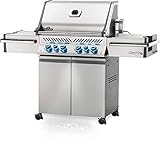 The Napoleon’s Prestige Pro utilizes marine-grade stainless steel for superior rust resistance.
The Napoleon’s Prestige Pro utilizes marine-grade stainless steel for superior rust resistance.
A premium choice for grilling enthusiasts, the Prestige Pro offers a robust stainless steel build that resists rust while delivering exceptional performance.
It features infrared side and rear burners, catering to diverse cooking styles with ease.
Known for its high-quality construction, the Broil King Baron S490 Pro IR includes rust-resistant stainless steel components, such as cooking grids and burners.
This design balances corrosion resistance with heat retention.
With an infrared side burner and rotisserie burner, it’s a versatile option for grilling and roasting.
 The PK360 is crafted from cast aluminum, a material naturally resistant to rust and celebrated for its heat retention.
The PK360 is crafted from cast aluminum, a material naturally resistant to rust and celebrated for its heat retention.
Its design supports both direct and indirect cooking, making it a durable and versatile choice for grilling and smoking enthusiasts.
This material doesn’t rust and conducts heat efficiently.
The PK360’s simple design, with fewer moving parts, reduces the chances of corrosion while ensuring long-lasting performance.
Grill Maintenance for Longevity
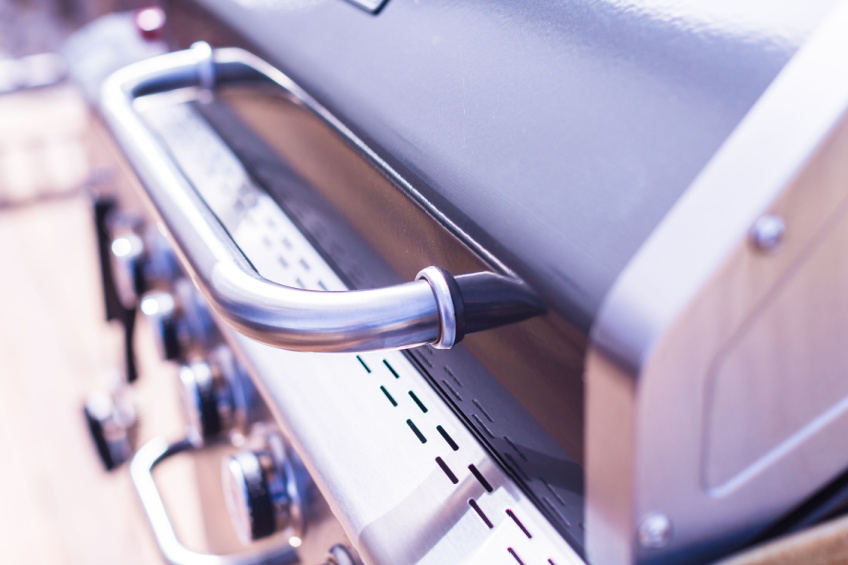
Regular care and protection are crucial for extending the life of your grill.
Proper cleaning practices and shielding from the elements can significantly reduce wear and tear.
Routine Cleaning and Care
Clean your grill after each use.
Brush the grates while still warm to remove food particles easily.
Empty and clean the grease pan regularly to prevent buildup and potential fires.
Use a grill brush with stainless steel bristles for effective cleaning.
For stubborn residue, soak grates in warm, soapy water before scrubbing.
Inspect burners and gas lines for clogs or damage.
Clear any obstructions in burner holes using a thin wire.
Check for loose connections and tighten as needed.
Wipe down the exterior with a mild detergent solution.
Avoid abrasive cleaners that can scratch surfaces.
Protective Measures Against Elements
Invest in a high-quality grill cover. It shields against rain, snow, and UV rays that can cause rust and fading.
Ensure the cover fits snugly and secures tightly.
Store your grill in a sheltered area when not in use.
A garage or covered patio offers extra protection from harsh weather.
Apply a thin layer of cooking oil to grates and metal surfaces to create a barrier against moisture. This helps prevent rust formation.
For coastal areas, wash salt air deposits off regularly.
Salt accelerates corrosion, so frequent cleaning is essential.
Consider using a dehumidifier near your grill if stored in a damp environment.
This reduces moisture that can lead to rust.
The Impact of Environmental Factors

Environmental conditions play a crucial role in grill durability and performance.
Certain elements can accelerate rust formation and corrosion, while others may have minimal impact.
Effects of Salty Air and Coastal Environments
Coastal environments pose significant challenges for grill longevity.
Salty air contains corrosive chloride ions that rapidly break down metal surfaces.
Grills in these areas often show signs of rust within months, even with regular maintenance.
Humidity in coastal regions exacerbates the problem.
Moisture combines with salt to create a highly corrosive mixture.
This accelerates the oxidation process, leading to faster deterioration of grill components.
Regular cleaning becomes essential in these environments.
Rinsing the grill after each use helps remove salt deposits.
Applying a protective coating can provide an additional barrier against corrosion.
Weather-Resistant Grill Options
Several grill manufacturers offer weather-resistant models designed to withstand harsh conditions.
Stainless steel grills with high chromium content provide excellent corrosion resistance.
Grade 304 stainless steel is a popular choice for its durability.
Powder-coated steel grills offer another weather-resistant option.
The coating creates a protective barrier against moisture and UV rays.
Some manufacturers use marine-grade aluminum for grill bodies, as it naturally resists corrosion.
Protective covers are crucial for extending grill life in challenging environments.
Look for covers made from water-resistant materials with UV protection.
Proper ventilation in covers prevents moisture buildup, further reducing rust risk.
Design and Features for Optimal Grilling
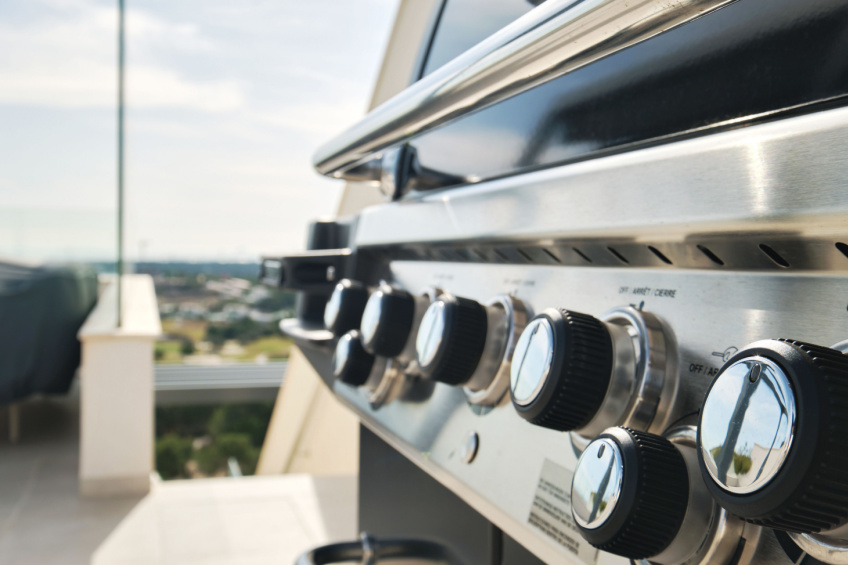
Modern grills incorporate innovative elements to enhance the cooking experience.
Key features focus on heat distribution, versatility, and user-friendly operation.
Innovative Burners and Grates
High-performance main burners form the core of advanced grills.
These burners deliver precise temperature control and even heat distribution.
Stainless steel construction ensures durability and rust resistance.
Many grills now feature infrared side burners.
These provide intense, direct heat for searing meats or quick-cooking vegetables.
Cooking grates made from cast iron or stainless steel offer excellent heat retention and create attractive grill marks.
Some models include specialized burners for rotisserie cooking or smoking.
These additions expand the grill’s functionality, allowing for a wider range of cooking techniques.
Enhanced Functionality with Add-Ons
Warming racks extend the usable cooking area.
They keep food warm without overcooking and are ideal for toasting buns or gently heating delicate items.
Side burners add versatility to outdoor cooking setups.
They allow for preparing sauces or side dishes without leaving the grill area.
Built-in thermometers help monitor cooking temperatures accurately.
Some advanced models feature digital displays or smartphone connectivity for precise control.
Storage cabinets and tool hooks provide convenient organization for grilling accessories.
Fold-down side shelves offer extra workspace and can be tucked away when not in use.
Grill Types and Their Susceptibility to Rust
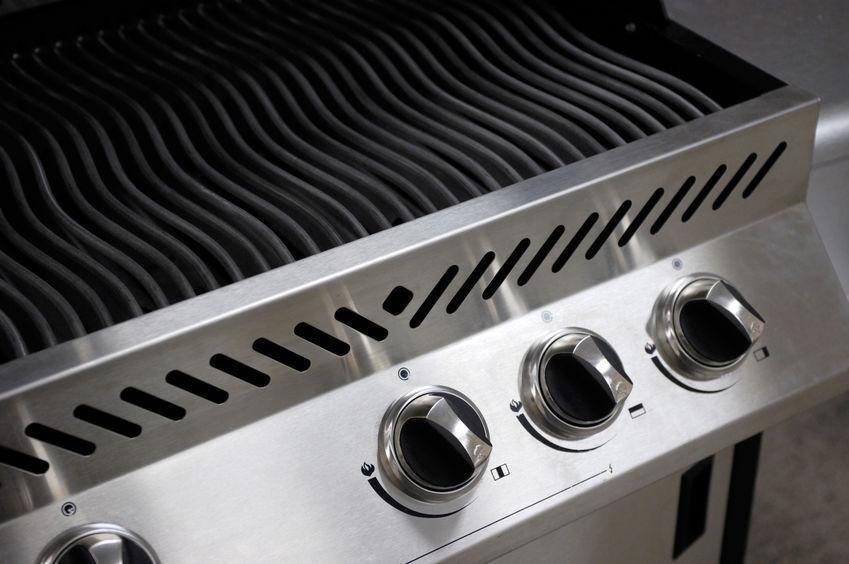
Different grill materials and fuel types impact how prone a grill is to rusting.
The choice between gas and charcoal, as well as stainless steel versus cast iron, can significantly affect a grill’s longevity and resistance to corrosion.
Pros and Cons of Gas Grills vs. Charcoal Grills
Gas grills offer convenience and temperature control, making them popular choices for outdoor cooking.
They typically have fewer exposed metal parts, which can reduce rust potential.
Propane grills often feature stainless steel or painted steel components that resist corrosion better than bare metal.
Charcoal grills provide a traditional flavor but may be more susceptible to rust.
Their design often includes more exposed metal surfaces, increasing the risk of oxidation. However, proper maintenance and storage can mitigate this issue.
Both types require regular cleaning and protection from the elements to prevent rust formation.
Gas grills may have an edge in rust resistance due to their construction, but charcoal enthusiasts can still enjoy long-lasting grills with diligent care.
Examining Stainless Steel and Cast Iron Options
Stainless steel grills are known for their rust-resistant properties.
High-quality stainless steel, such as 304 grade, offers excellent corrosion resistance.
These grills maintain their appearance and structural integrity over time, even when exposed to outdoor conditions.
Cast iron grills provide superior heat retention and distribution.
While they can rust if not properly maintained, seasoned cast iron develops a protective layer that inhibits corrosion.
Regular oiling and proper storage are crucial for cast iron grill longevity.
Rust-resistant grills often combine stainless steel bodies with cast iron cooking grates, offering the best of both materials.
This combination provides durability and performance while minimizing rust concerns.
Regardless of material choice, proper care remains essential for extending a grill’s lifespan and preventing rust formation.
Cooking Space and Convenience
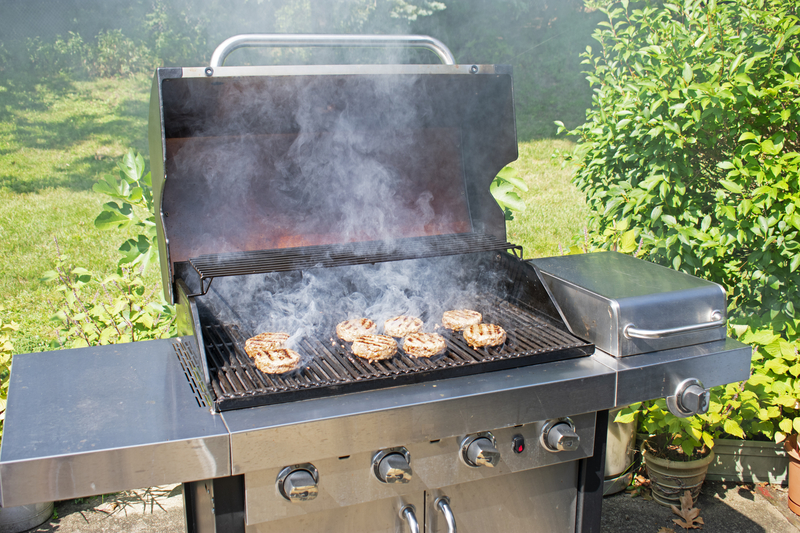
Grill size and features significantly impact the cooking experience.
The right balance of space and functionality allows for efficient meal preparation and enjoyable outdoor cooking sessions.
Size and Cooking Area
Grill cooking areas typically range from 200 to 1000 square inches.
Smaller grills offer 200-400 square inches, suitable for 2-4 people.
Medium-sized grills provide 400-600 square inches, ideal for families or small gatherings.
Large grills boast 600-1000+ square inches, perfect for entertaining or cooking multiple dishes simultaneously.
Some grills feature tiered grates or warming racks to maximize vertical space.
Primary cooking surface measurements are crucial.
A 450-500 square inch main grate comfortably fits about 24 burger patties.
Consider side burners for additional cooking options.
Extra Features for Ease of Use
Built-in thermometers help monitor cooking temperatures accurately.
Adjustable dampers allow for precise heat control.
Some grills include storage cabinets or hooks for utensils and accessories.
Side tables provide extra prep space.
Folding designs save room when not in use.
Wheels or casters enhance mobility, especially for larger grills.
Easy-clean systems like removable ash catchers or grease management trays simplify maintenance.
Push-button ignition systems offer convenient startup.
Some high-end models feature smart technology for remote temperature monitoring and control.
Bottom Line – Is There a Rust Proof Grill?
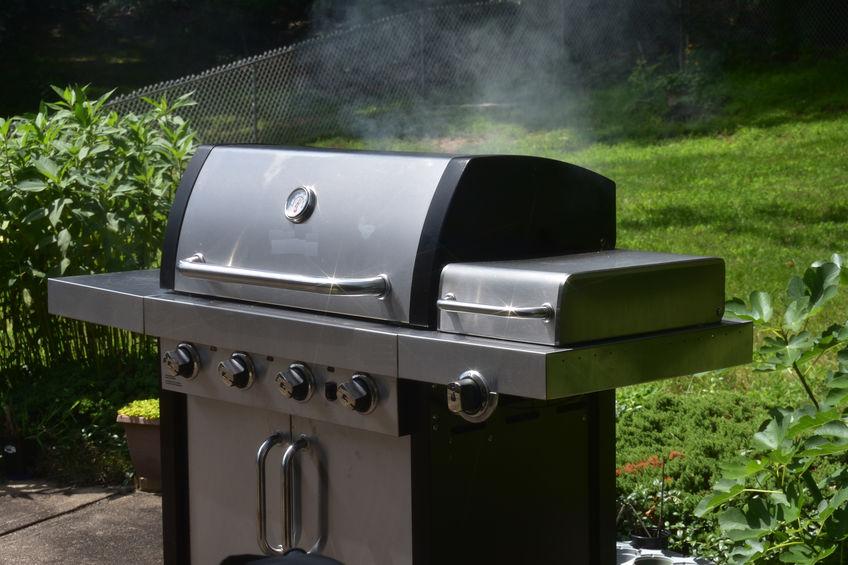
Rust-proof grills offer durability and longevity for outdoor cooking enthusiasts.
While no grill is completely immune to rust, certain materials and protective measures can significantly extend a grill’s lifespan.
Summing Up Rust-Proof Grill Options
Stainless steel grills provide excellent rust resistance, especially higher-grade options like 304 stainless steel.
These grills often boast higher BTUs and maintain their appearance over time.
Ceramic-coated grills offer another rust-resistant choice.
The ceramic coating acts as a barrier against moisture and corrosion, enhancing the grill’s durability.
Aluminum grills naturally resist rust and are lightweight.
However, they may not match the heat retention of other materials.
Regular maintenance is crucial for any grill type.
Cleaning after each use, covering when not in use, and addressing any rust spots promptly can greatly extend a grill’s lifespan.
While no grill is entirely rust-proof, choosing the right materials and practicing proper care can result in a long-lasting outdoor cooking companion.
